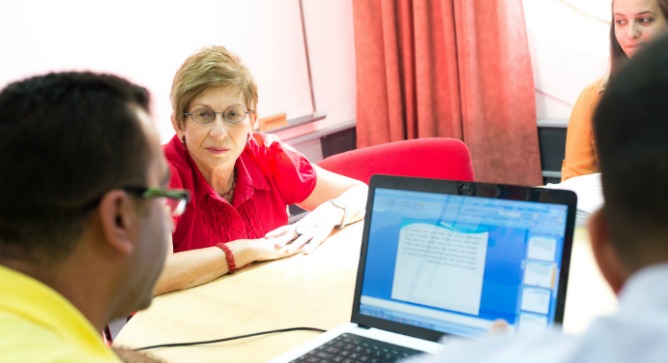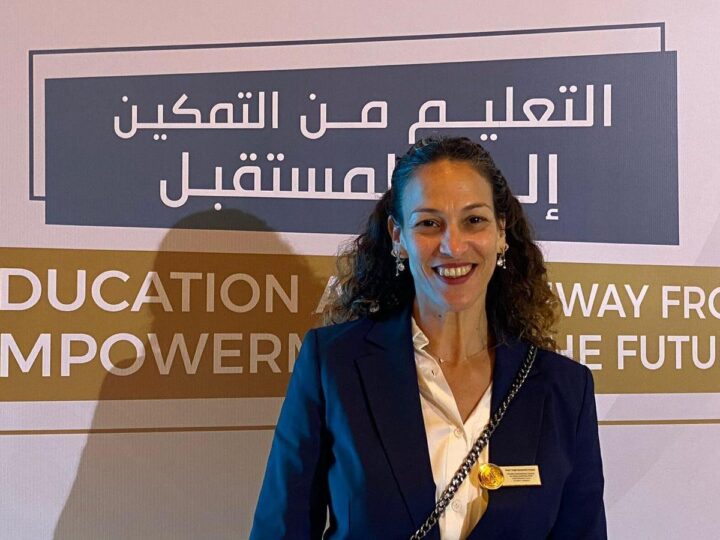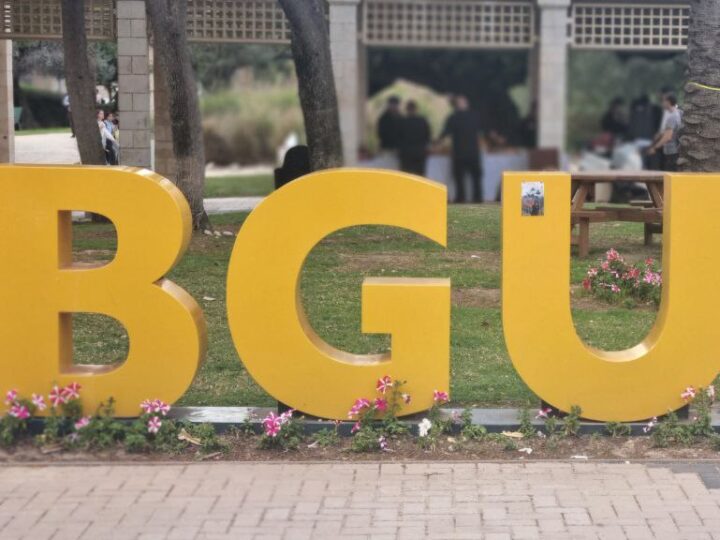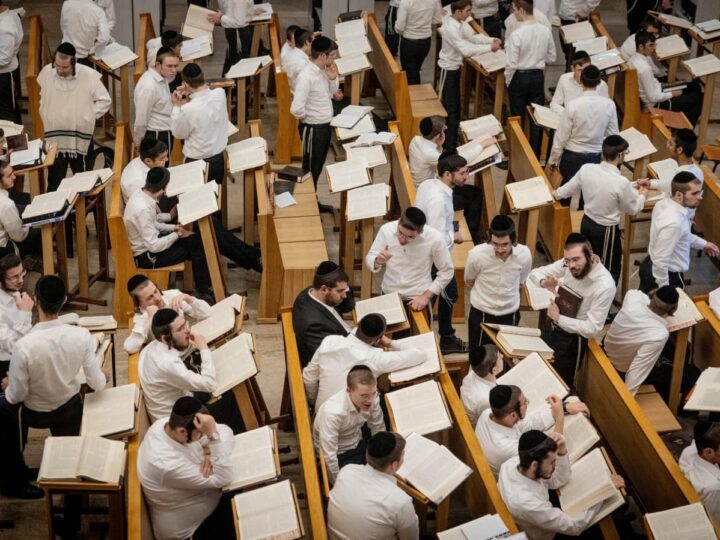School psychologists in the Bedouin schools of Israel’s Negev Desert deal with a host of issues particular to this population, from inter-clan feuds that spill onto the schoolyard, to the emotional fallout from polygamy.
Only a professional from within the society can fully understand the intricacies of its unique situations. But there just aren’t enough trained Bedouins to fill the need. So the Israeli Council for Higher Education turned to Ben-Gurion University of the Negev (BGU), which has several other programs aimed at giving Negev Bedouins entrée to higher education.
Spread the Word
• Email this article to friends or colleagues
• Share this article on Facebook or Twitter
• Write about and link to this article on your blog
• Local relevancy? Send this article to your local press
In fall 2011, the departments of education and psychology revived a special program leading to a master’s degree in educational psychology for Arab-Israeli and Bedouin students. A few had graduated from a similar program years ago, but the course was discontinued.
Prof. Shifra Sagi is more than willing to do whatever it takes to make the program work this time.
“I think it’s very important, and it was my first initiative as head of the educational psychology track,” says Sagi, who has insights into Bedouin society through her work in the schools and in a conflict-resolution forum.
“The situation of the educational system in the Bedouin community is very difficult,” she tells ISRAEL21c. “I would like to enhance and improve educational psychology in the schools. There are now some public counseling services available, but the counselors are mostly not Bedouin.”
Helping children cope
Of an estimated 160,000 or 170,000 Bedouins in Israel, about 110,000 live in the Negev. Some 70,000 reside in unrecognized villages with little access to government services. For a variety of reasons, many of these Bedouins have resisted Israeli government efforts to move them to official areas.
The only part of this complex reality that is relevant to Sagi is its effect on the children living in it.
“The psychologists don’t need to be involved in the conflict between the state and the Bedouin. For them, the goal is just to help the children cope with this situation.”
Because their family dwellings are illegal, the threat of house demolitions brings a constant aspect of uncertainty into their lives.
“A Bedouin teacher told me about one boy who drew a picture of a hill and explained that when he climbs to the top his heart is beating hard because he does not know if he will still see his home when he looks down. You need to help him deal with this — not in a political sphere but in an emotional sphere,” says Sagi.
There are other needs particular to children growing up in Bedouin society, even in recognized towns and cities. In Rahat, a Bedouin city near Beersheva, Sagi says the schools are marked by overcrowding and violence. Some of the fighting stems from age-old rivalries between clans.
In addition, many Bedouin kids are dealing with the emotional effects of being raised by polygamists, and/or suffer from genetic diseases resulting from consanguineous marriage between cousins. Educational psychologists are urgently needed to administer services such as diagnostic testing so that children can get the help they are entitled to.
“There is a lot of work to be done,” Sagi says.
Leveling the playing field
Before Bedouins can be trained to do this work, however, they must be brought up to an academic level on par with their Israeli university peers. Likewise, non-Bedouin graduates of Arab universities have some catching up to do. This is an area BGU has long addressed with special programs, and the educational psychology track is no exception.
The 11 students who enrolled in the new ed-psych program included six Bedouins with undergraduate degrees from Jordan, plus five northerners with degrees from Arab-Israeli universities. They began with a year of preparatory courses to qualify for the two-year master’s program.
Unfortunately, only one of the Bedouin students remains. “Their BA is not on the same level as a BA in Israel,” explains Anan Srour, an Arab-Israeli psychologist from the Galilee who teaches in the BGU program and works in East Jerusalem. “We gave them supplemental help but they quickly felt they could not succeed.”
He tells ISRAEL21c that BGU may lower entrance requirements for bachelor’s degrees in psychology in order to get additional Bedouins enrolled in the future. “Once they complete that, they will be ready for the master’s program. They have to have a master’s degree to be licensed as school psychologists.”
Sagi is optimistic about next year, when the remaining six students from the prep course join the other master’s students. Each of them will receive on-site training in Jewish and Bedouin clinics all over the Negev.
“The most exciting part for me is that the group will consist of half Arabs and half Jews,” she says. “We will need to adapt our program for this composition and this is very challenging and interesting. It’s a personal mission for me because we must learn how to work together.”

















